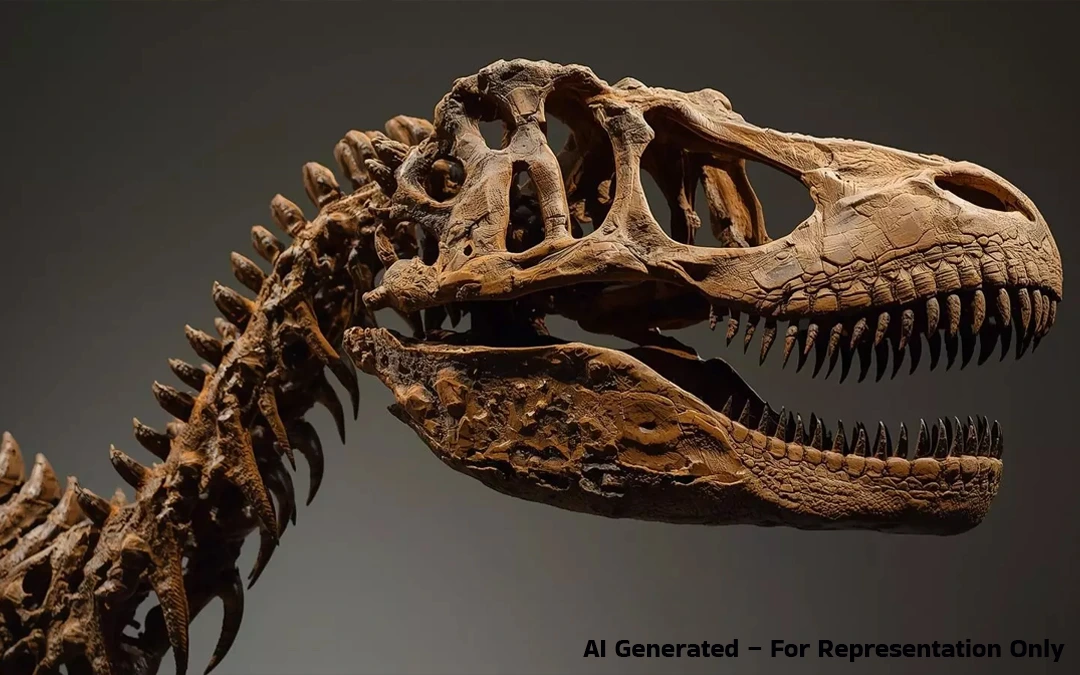Jaisalmer, Rajasthan: A groundbreaking discovery has been made in Megha village near Fatehgarh, Jaisalmer, where scientists have unearthed India’s first-ever phytosaur fossil, estimated to be around 200 million years old.
The research team, led by Dr. V.S. Parihar, Dean of the Department of Geophysics and Science, confirmed that the fossil belonged to a phytosaur — a prehistoric reptile that lived during the Triassic and early Jurassic periods. While its body resembled a modern crocodile, experts clarified that phytosaurs were not dinosaurs and are classified as an extinct group of semi-aquatic reptiles.
During the excavation, researchers also found eggs beneath the skeleton, making the discovery even more remarkable. Scientists believe these eggs may have been part of the creature’s reproductive remains.
According to the team, the fossil is around 1.5 to 2 meters long and provides rare insight into prehistoric ecosystems in India. The Geological Survey of India (GSI) will now conduct further excavations in the area, as the site may contain additional fossils.
What is a Phytosaur?
A phytosaur was a large, crocodile-like reptile that lived around 210–200 million years ago. Despite their appearance, they were not directly related to crocodiles. Key differences included:
- Nostril placement – located near the eyes, unlike crocodiles whose nostrils are at the tip of the snout.
- Era – they lived during the Triassic period, long before modern crocodiles appeared.
- Habitat – they were semi-aquatic predators, often found near rivers and lakes, feeding on fish and smaller land animals.
This discovery not only marks the first phytosaur fossil ever found in India, but also highlights Jaisalmer as one of the most significant fossil-rich regions in the country
Discover more empowering stories and insightful content like this on YOUxTalks, your go-to destination for inspiration and knowledge.
Follow YOUxTalks on Instagram: https://www.instagram.com/youxtalks











